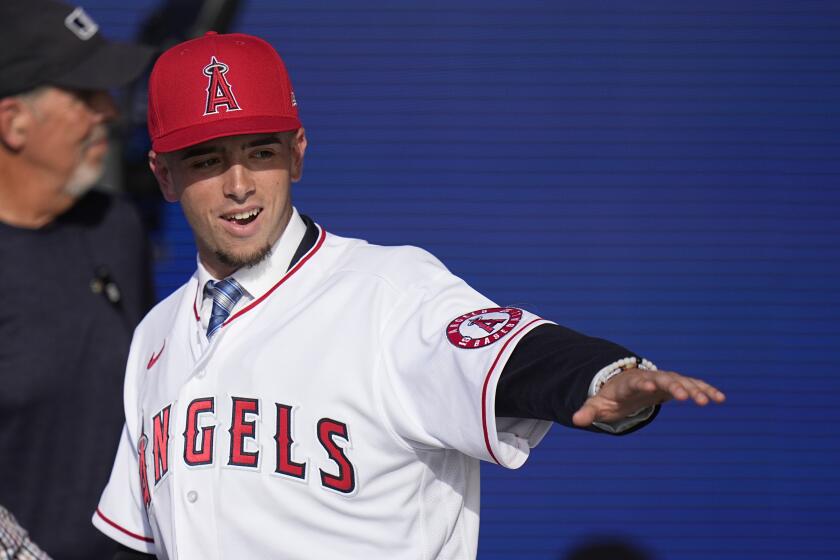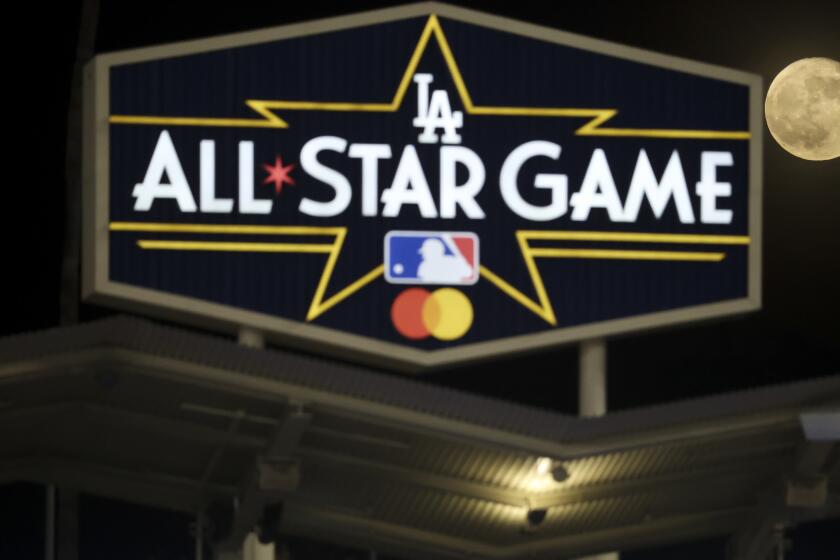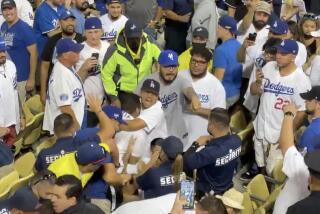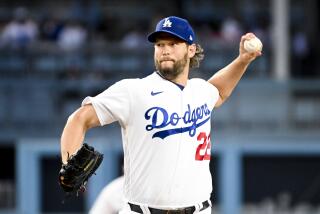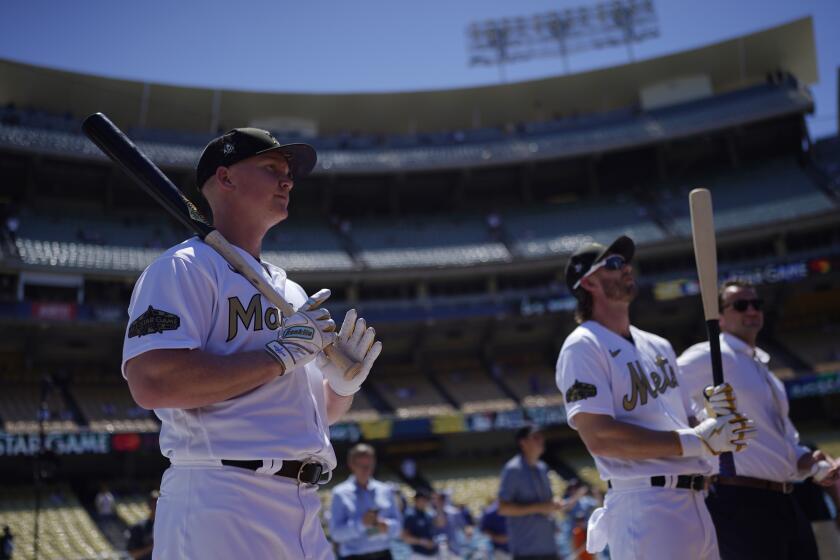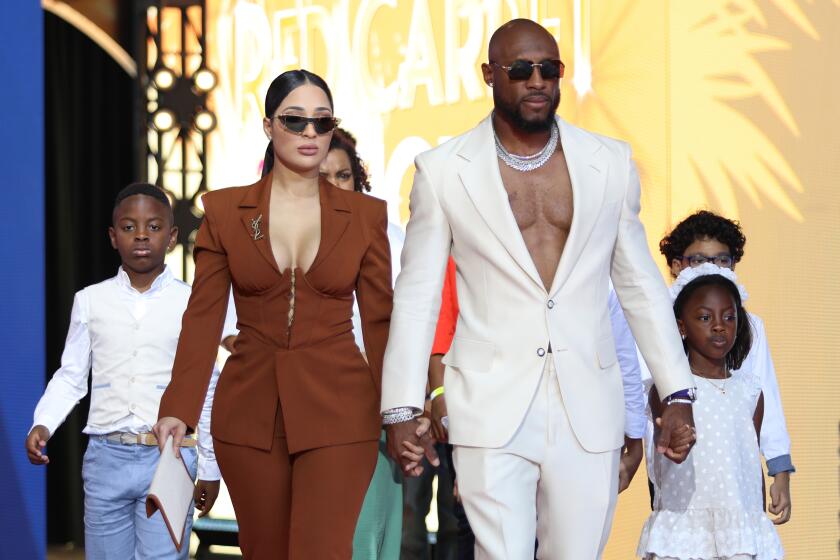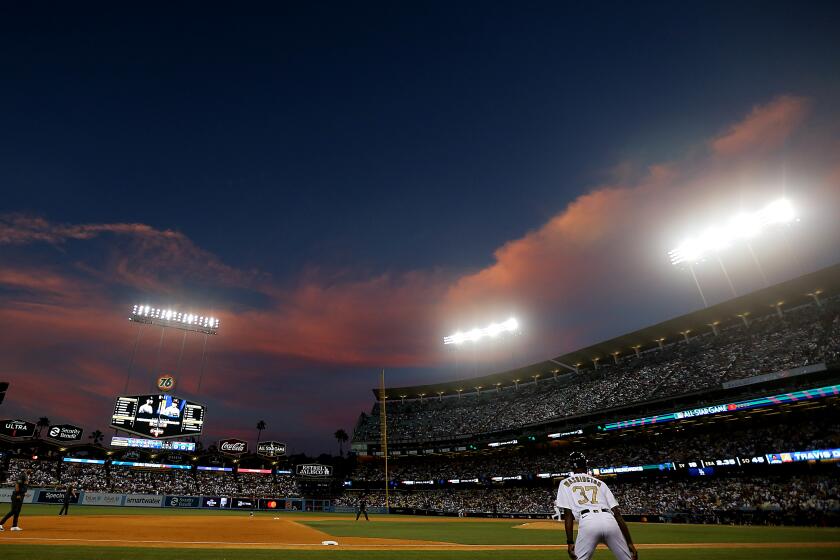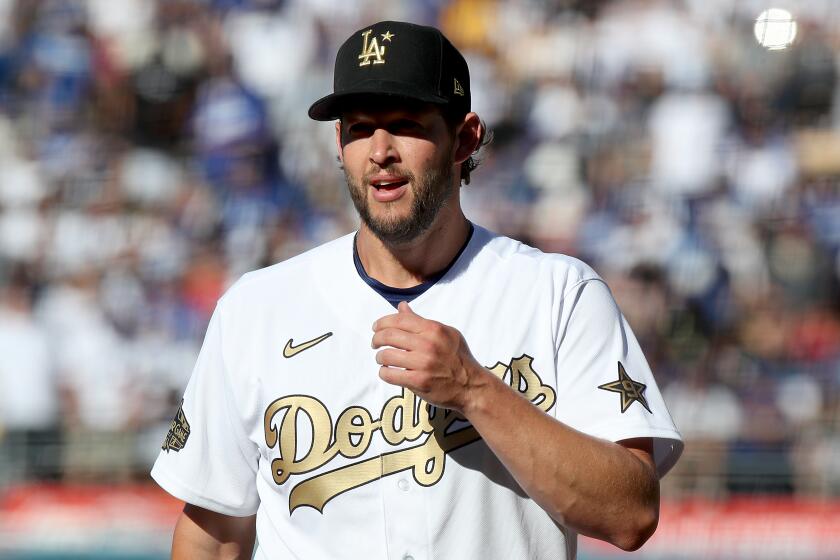When it comes to the chop, pitcher Ryan Helsley hopes the Braves will do the right thing
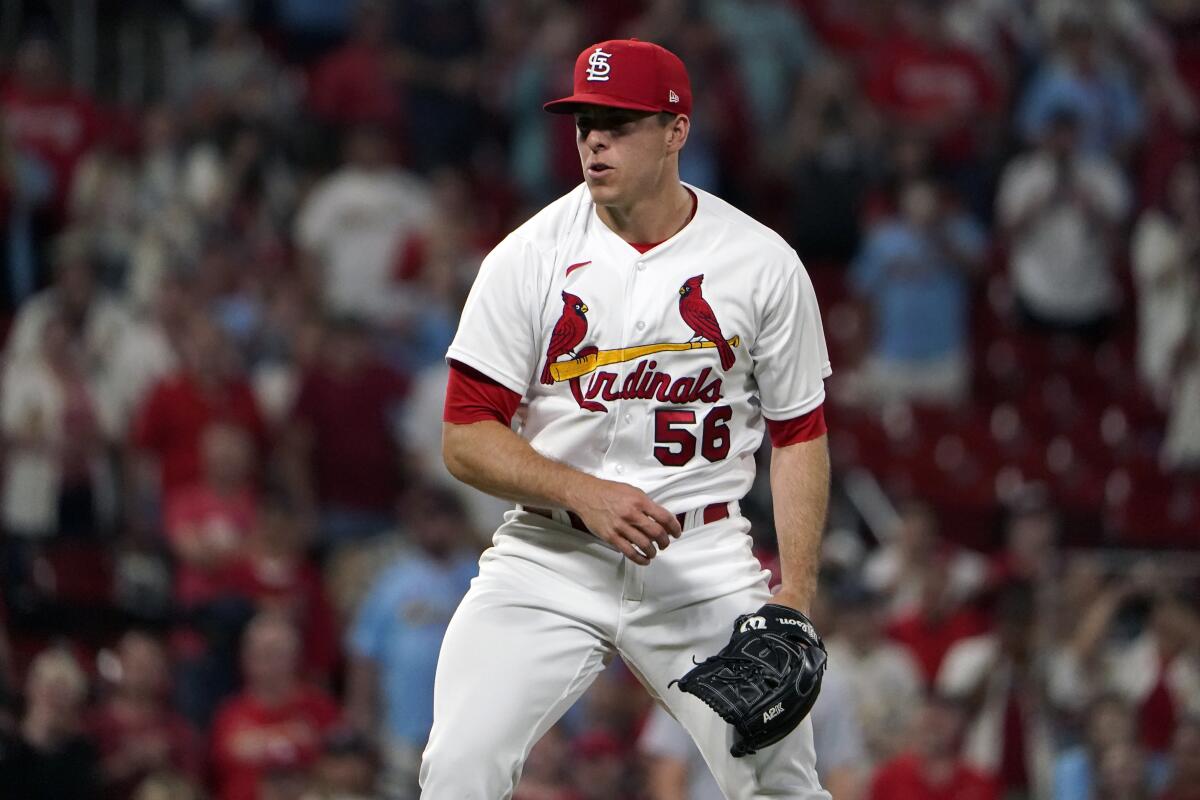
- Share via
Do you live in a tepee?
Think about that for a second. You are an All-Star, a pitcher at the top of your game. No matter.
Ryan Helsley is a member of the St. Louis Cardinals. He also is a Native American, a member of Cherokee Nation. He has to wonder whether people will ask him if he lives in a tepee, because people have asked him that.
This is the 21st century. The tepee is a outdated caricature. So is the tomahawk chop.
Helsley explained that to the Atlanta Braves three years ago. The Braves continue to do the chop, as part of a light and sound production integral to the fan experience at Truist Park.
“We’ll see how they intend on taking the approach to change,” Helsley said Monday at Dodger Stadium, “and if they want to.”
To the Cherokees, Helsley is a role model — not because he is a major league baseball player, but because he used his platform to share his heritage with America. Helsley grew up and still lives in Tahlequah, Okla., the capital of Cherokee Nation.
After selecting 20 pitchers last year, the Angels took a varied mix of players in the 2022 MLB draft, starting with shortstop Zach Neto.
“Here was a guy who wanted to protect not just sports, but to protect a way of life for a culture that many may not know about,” said Bryan Warner, deputy chief of Cherokee Nation, “and that has been around here since before statehood.”
Today, Warner said, the Cherokee Nation has more than 400,000 citizens, dispersed throughout the United States. The Cherokees used to be concentrated in the Southeast — Georgia included — before many were relocated via the so-called “Trail of Tears” between 1830 and 1850.
“We were forcibly removed,” Warner said.
Tahlequah is majority white, according to census data, with Native Americans making up more than a quarter of the population. In past offseasons, Helsley said he has volunteered at the local Cherokee language immersion school.
“I would try to get the kids to talk to me in Cherokee, because they would know more than me,” Helsley said. “I only know a few words. I can’t hold a conversation, or anything like that.”
The language is a proud tradition to share. The chop is not.
He would like the Braves to be aware of that. Whether they ban the chop is up to them, he said.
“It’s more about who we are as a people,” Helsley said. “I think it’s for people to understand what they’re doing and what that means.”
In 2019, when the Cardinals played in Atlanta in the postseason, Helsley told the St. Louis Post-Dispatch the chop was “disrespectful,” saying it depicted Native Americans “in this kind of caveman-type people way who aren’t intellectual.” The Braves toned it down that October.
In 2020, there were no fans. In 2021, as the Dodgers saw during the National League championship series and America saw during the World Series, the Braves rambunctiously and repeatedly featured the chop in their game presentation.
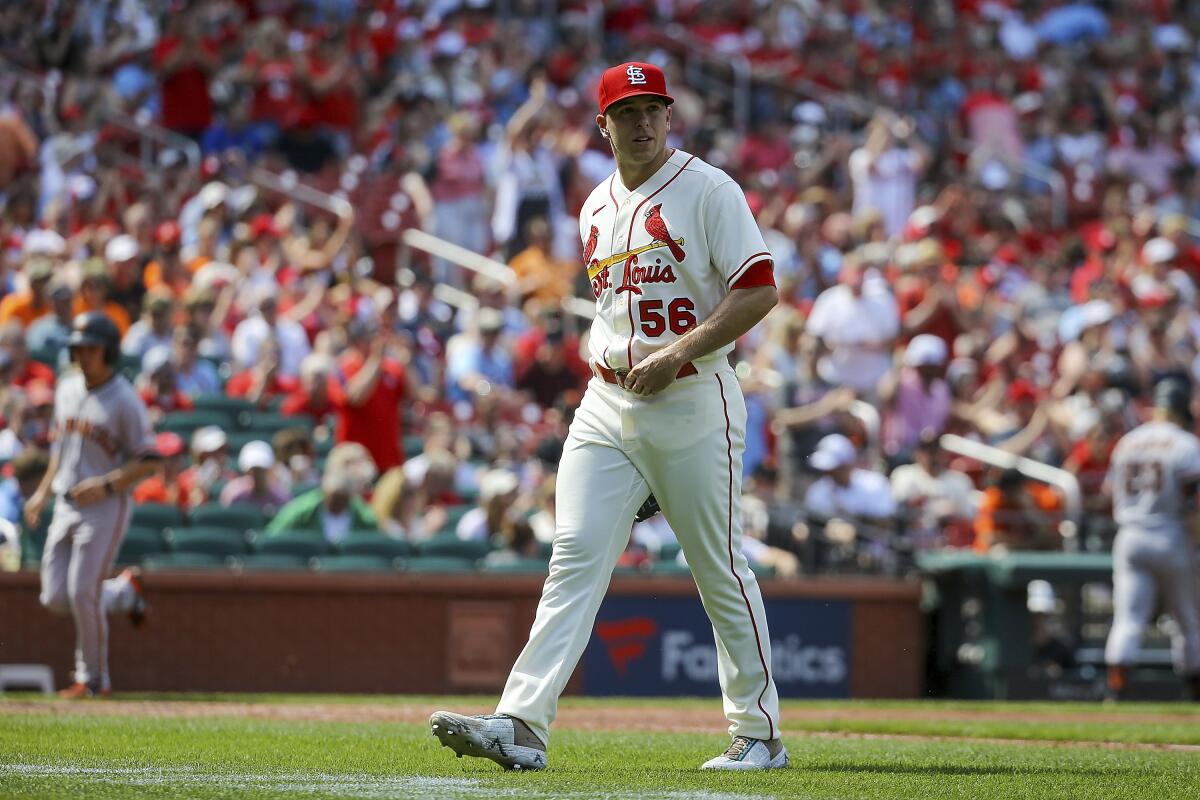
During the World Series, Commissioner Rob Manfred said the Braves had the support of “the Native American community in that region.”
The Braves indeed have partnered with the Eastern Band of Cherokee Indians, which remained in the area amid the Trail of Tears relocations. The team calls the Eastern Band “the largest federally recognized tribe in our region.”
The Braves commemorate the tribe with a permanent exhibit at Truist Park. On Saturday, when the Angels play in Atlanta, the Braves will celebrate tribal traditions on a special night to honor the tribe.
“I’m not offended by somebody waving their arm at a sports game,” the principal chief of the tribe, Richard Sneed, told the Associated Press last year.
“The Eastern Band is just one tribe,” Warner said. “I applaud their efforts to try to get out there and help people understand.
“There are 570-plus federally recognized tribes across the United States. What is offensive to one may not be to another, and not just regarding the chop.”
Manfred should not have to tell the Braves what to do. The Braves should do it themselves.
The MLB All-Star Game returned to Dodger Stadium for the first time since 1980 on Tuesday. Here’s our coverage:
The celebration of tribal culture is wonderful. But that does not absolve the Braves — and every team — of doing whatever they can to make everyone feel welcome at the ballpark. Helsley essentially is telling the Braves he does not feel welcome at their ballpark.
The Braves have understood this before. They used to have a tepee in their ballpark — and, emerging from it, a man in Native American dress called Chief Noc-A-Homa.
The tepee is long gone. The chop should be too.
More to Read
Go beyond the scoreboard
Get the latest on L.A.'s teams in the daily Sports Report newsletter.
You may occasionally receive promotional content from the Los Angeles Times.

